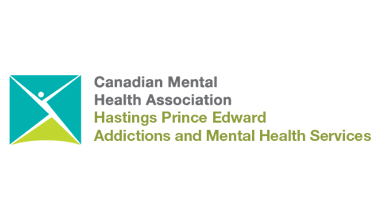
7 things that are good examples of self-care and 7 things that aren’t
Happy International Self-Care Day!!
What are some of your go-to self-care methods?
The term "self-care" has been thrown around a lot lately since it's become en vogue to discuss the nice things you do for yourself in the name of being your own best nurturer. To help you understand how this concept is applied to daily life, I asked Dr. Kristen Lee — "Dr. Kris" — to give us her working definition. "Self-care can sometimes be confused with self-indulgence or selfishness — but it is neither of those," she told me. "Self-care is a daily practice, one that is a deliberate and intentional and process of tending to the mind, body and spirit."
Dr. Kris is the lead faculty for behavioral science at Northeastern University and a behavioral health clinician "devoted to self-care and resilience." I also spoke to Julie Burton, a self-care and wellness expert, speaker, and award-winning author of The Self-Care Solution: A Modern Mother's Must-Have Guide to Health and Well-Being. Using wisdom from both these expert women, as well as a bit of scientific research, I've compiled a list of seven things that are useful examples of good self care, and seven things that aren't so much.
Self-care: accepting help
Self-care is often about setting yourself up to succeed in your life, and sometimes that means admitting that you can't do everything all alone. It can also sometimes mean dropping your quest for that elusive "perfection."
Burton told me that a good example of self-care for a busy mother, for instance, is to "[say] yes to your mother-in-law's offer to help with the kids even though she doesn't do everything exactly the way you like, and using that time to do what you really need for yourself (perhaps a nap)."
And once you accept help, don't forget to show your genuine appreciation. Creating and maintaining "connections with those around you," (when possible) said Burton, is a bonus example of self-care in action.
Not self-care: trying to impress people by overextending yourself
According to Burton, "self-care is not about pleasing everyone." This is one of my favorite quotes from all the research I did, because so many women try to do this, sometimes without even realizing it, at the expense of their own health and happiness. You might recall the recent Vanity Fair interview with Angelina Jolie, where the recently ill actress now famously stated, "Sometimes women in families put themselves last, until it manifests itself in their own health."
Dennis Portnoy, psychotherapist and author of the book, Overextended and Undernourished : A Self-Care Guide for People in Helping Roles, says it's a common mistake for caretakers and people-pleasers to be too focused "…on the needs of others at the expense of attending to their own needs."
Not only is overextending yourself for others not helpful to you, he (and other experts) argues that it can be bad for all parties in the end, since, "In addition to the stress of being in a helping role, [these over-givers] often have habits that undermine their efforts at self-care and increase their susceptibility to compassion fatigue," making themselves less able to be giving in the end.
Self-care: getting enough rest and relaxation
According to Raphailia Michael, a licensed counseling psychologist writing for PsychCentral, rest and relaxation are definitely part of a good self-care routine. She says, "get[ting] enough sleep… seven to eight hours" is paramount, in addition to doing daily "relaxation exercises," as well as "at least one relaxing activity every day, whether it's taking a walk or spending 30 minutes unwinding." The idea is that you want to get the kind of rest that relaxes and recharges you.
Dr. Kris even recommends coming up with "regular break rituals" for yourself, so you can avoid ever getting tired or stressed to the point where you might have a blow up. "When we wait until that big vacation or for stress to let up," she told me, "we miss daily opportunities to take short breaks to regroup our brains and bodies."
Not self-care: zoning out in front of reality shows all night then sleeping late
Imagine you're coming home at the end of what feels like a very long, busy day, at the end of a long, busy week. If you weren't able to take regular breaks to decompress and rest, you might be feeling absolutely exhausted by whatever it is life and work have been throwing at you. It may feel tempting to just shut down your brain in front of a Real Housewives of New York marathon, totally zoning out, and only peeling yourself off the couch in time to roll exhausted under the covers, way after bedtime.
Does this seem "recharging" to you? Probably not. The next morning you'll either have to wake up at a normal hour and function on too-little sleep, or you'll "get to" sleep late, and lose the productive morning hours of your day.
Dr. Kris told me that "while guilty pleasures… can be enjoyable and bring some temporary relief," real self-care activities "can actually add up to our health bottom line." So rather than doing what she calls "zoning out via tv or 'screen sucking' to escape stress and exhaustion," a healthy unwinding activity, like reading in the bath, and then going to bed on time to get enough rest, might serve you much better in the end.
Self-care: dressing in a way that makes you feel good
Dress for success. Dress to impress. Dress for the job you want. The clothes make the man.
There's no question that having good grooming habits and dressing well are generally thought to be makers of high functionality in our society. And spending time on feeling good about your self-presentation is a way to express that you value yourself, to both yourself and the rest of the world.
Burton told me that doing things to show yourself and others that you "believe you are worthy" is a major component of self-care. But she also reminded me that, "while feeling good and being confident about your [appearance] is very important to your overall health and well-being, physical self-care is one aspect of your overall self-care, which includes caring for your mental, emotional, relational, and spiritual health." Again, it seems like finding a healthy balance is one of the best self-care strategies, according to the experts.
Not self-care: engaging in "retail therapy" without any regard to your budget
Sure, dressing yourself so that you feel well-groomed and confident is a great example of self-care. But there's a difference between putting on your best pressed suit or dress when you want to feel like a boss, and going out to buy things you don't need, racking up credit card debt so you can dress like Beyoncé.
In our interview, Dr. Kris called "shopping therapy" a form of "maladaptive" coping mechanism. "Sometimes we can end up spending a fortune on personal maintenance… clothing… etc. None of these things are bad per se," she explained, "but if we are living a 'goods life,' we will have a harder time getting to what positive psychologists call 'the good life'… a life characterized by positive relationships, healthy behaviors, gratitude, and mindfulness."
So shopping therapy comes with baggage even if you do have the money to be constantly buying yourself new stuff. But it's especially bad if you are going into debt to do it. Debt is a major contributor to stress problems, so unnecessarily digging yourself in deeper is not a good self-care strategy. Burton even compared using shopping as an unhealthy coping mechanism to the likes of overindulging in "drinking, eating, pills, or sex."
Self-care: allowing yourself an occasional "treat" like an ice cream cone with friends
Deciding what self-care really is and isn't often has a lot to do with what your normal habits are. Are you generally quite mindful about the kind of food you put in your body? Eating veggies and fruits at most every meal and staying away from too much processed junk? Then you may want to grant yourself a little flexibility and have an occasional treat, especially if it's part of a social occasion.
But if you frequently use sugar as a coping mechanism, reinforcing that negative habit may not serve you. Burton told me that when it comes to making decisions about what makes for good self-care, it's important to consider "… the why behind your 'self-care.'" If you can do that, she said, "it is easier to determine which of your actions are truly about self-care," and which may not end up serving you.
So should you have that treat? "When it comes to self-care, treating yourself means treating yourself well, not with foods that… leave you feeling guilty," says AADP Holistic Health Coach Amy Kurtz. So ask yourself how the treat in question will make you feel, and remember that wisdom that the best healthy diets are the ones you can stick to — those that allow for a bit of flexibility.
Not self-care: frequent mindless snacking on foods that will make you feel worse
While an occasional treat won't wreck your health, bingeing on sugar or frequent "overindulgence in food… only provide temporary relief and can spur on more problems like obesity, ill health, and addiction," said Dr. Kris.
So while eating half a tray of brownies might make you feel better in the moment, it's not real self-care, because after-the-fact you'll probably feel worse than you did, not better. So any time you're making choices about what kind of self-soothing activity you might want to engage in, consider if it will help or hurt your bottom-line wellbeing.
Self-care: scheduling time for exercise
When I asked about some of her favorite self-care activities, Dr. Kris listed "exercise and movement" near the top. "The more we move our bodies, the better," she said. "Getting out in nature and breathing, while moving, and ideally, working up a sweat is vital for our health."
And not only will making room in your schedule for regular exercise keep your body healthy, in many cases it's been shown to be as effective as pharmaceuticals in managing mood, anxiety, and depression. "Select aerobic activities, such as running, biking or swimming, that trigger the release of 'feel good' neurochemicals," Dr. Kate F. Hays told the American Psychological Association. You can also use exercise as a way to zone out and relax your mind — "as a distraction" from other, less-enriching zoning-out methods, like mindless snacking or TV-watching.
What's a good example of exercise as self care? "Going to the gym after a tough morning with your toddler or a nerve-racking day at work so that you can release stress, clear your mind, give yourself an energy boost, take care of your body and your mind to help you feel grounded, happy and healthy," offered Burton.
Not self-care: pushing yourself past your limits in the name of appearance
Have you read any of the recent media debating whether or not millennials are the new victorians or puritans? The thought is that today's young adult generation is romanticizing "virtuous behaviors," the way the strict victorian and puritan cultures did, through intense lifestyle choices like marathon running, the raw food movement, juice fasts, etc. So while frequent, even daily, exercise is a super important part of self-care, too much might be counter-productive.
"Self-care is not jumping from one fad diet to the next or obsessively working out in an effort to create a chiseled body," Burton said in our interview. Exercise as self-care works when it's about feeling good, healthy, and self-confident, not when it's about "… heading to the gym with the sole intention of burning off the four donuts you 'treated' yourself to at work because you want to be bikini-ready by the weekend," Burton explained.
Self-care: making time for a "friend date"
Humans are social beings. And while tending toward introversion and liking your alone time are fine and totally normal, no woman is an island. Dr. Kris lists building and maintaining "positive, nurturing, reciprocal relationships," as a crucial form of adaptive self-care. These qualities are important in your relationships with your family (chosen or biological), but it's also important to cultivate these qualities in key friendships as well.
At a certain point in life, juggling career, family, kids, housekeeping, etc. can leave you feeling like you don't have time for your friends. Don't fall into the trap of letting key friendships fall to the side! Dr. Kris advises "mak[ing] the time for relationships that help you grow with people who are also committed to growth and well-being. This helps spur on follow-through."
Not self-care: going out all the time at the expense of other things important to you
Making time for friends and fun is definitely crucial, but if you find yourself going out constantly at the expense of any of your other self-care routines, responsibilities, or budget, then maybe you should ask yourself if there's something you're avoiding (unintentionally or not).
If you find your budget, grades, house cleanliness, etc. being negatively affected by constant socializing, then it's crossed over into what Dr. Kris might refer to as "maladaptive overindulgence," and overindulgence is not a word that mixes well with self-care.
So what's the antidote? Dr. Kris said, "mindfulness has become 'the new kale' for good reason. It's not just a fad… this age old wisdom that helps us focus on the present and work towards a non-judgmental stance helps us absorb life in new ways." So if you find yourself practicing avoidance, or trying to deal with stress through overindulgence, a mindfulness or meditation practice could be the way to go.
Self-care: setting healthy boundaries with needy family, friends, or co-workers
You've almost definitely heard the wisdom that learning how to say "no" is a crucial skill for the over-burdened. Burton rather eloquently told me, "Self-care is about setting emotional boundaries that protect your health and well-being, and saying no to people in your life who try to drag you into their sea of despair or dysfunctional relationships and are unwilling to help themselves."
So if your overly dramatic frienemy wants you to drop everything you're doing and listen to her crazy Tinder story for the tenth time this week, for instance, or your undermining mother wants to order you around deep into adulthood, you may have to be cruel to be kind and set some healthy boundaries.
Not self-care: retreating from positive relationships and isolating yourself
While setting healthy boundaries is pivotal to maintaining your health and sanity, there is the potential to go too far, and start to isolate yourself from meaningful relationships. "Life is challenging and we can't maintain optimal health if we are isolated," Dr. Kris told me. "Isolation is becoming a risk of today because of increased demands and technology."
Sometimes it feels so tempting to retreat from the stresses of society and just "Netflix and chill" and sometimes that's fine. But totally giving in to this impulse could be a mistake. As Burton said, "Self-care is facing your reality and believing in yourself and your ability to handle what is on your plate." And, according to both experts I spoke to, one of the best ways to do that is to invest in your positive relationships. This could include "devoting extra time and energy to your partner… or seeking support from trusted friends or a therapist," Burton said, though she also stated that "self-care is not about… being everyone's best friend."
Every source I consulted seemed to stress balance as part of the ultimate way to identify true self-care, and sometimes giving yourself good care means setting yourself up to get good care from others. Remember, you have to give love and care to receive love and care from others, so while setting boundaries is good, totally retreating from social life and your support network is not a good idea.
You do you
True self-care isn't selfish; it's part of leading a happy, healthy life. But it's also not always easy. It can take real, conscious, intentional effort to make choices that will actually contribute to your overall wellness, as opposed to just treating the symptoms of stress or daily wear and tear.
As Dr. Kris put it, "While guilty pleasures like chocolate or shopping can be enjoyable and bring some temporary relief, high-impact, scientifically grounded self-care activities can actually add up to our health bottom line." So with the voices of all these sage, self-care experts in your mind, what choices will you make to nurture yourself today?
Read More: https://www.thelist.com/80882/things-that-are-good-examples-of-self-care-and-things-that-arent/?utm_campaign=clip
- Author: CAMMY PEDROJA
- Article Source: The List








